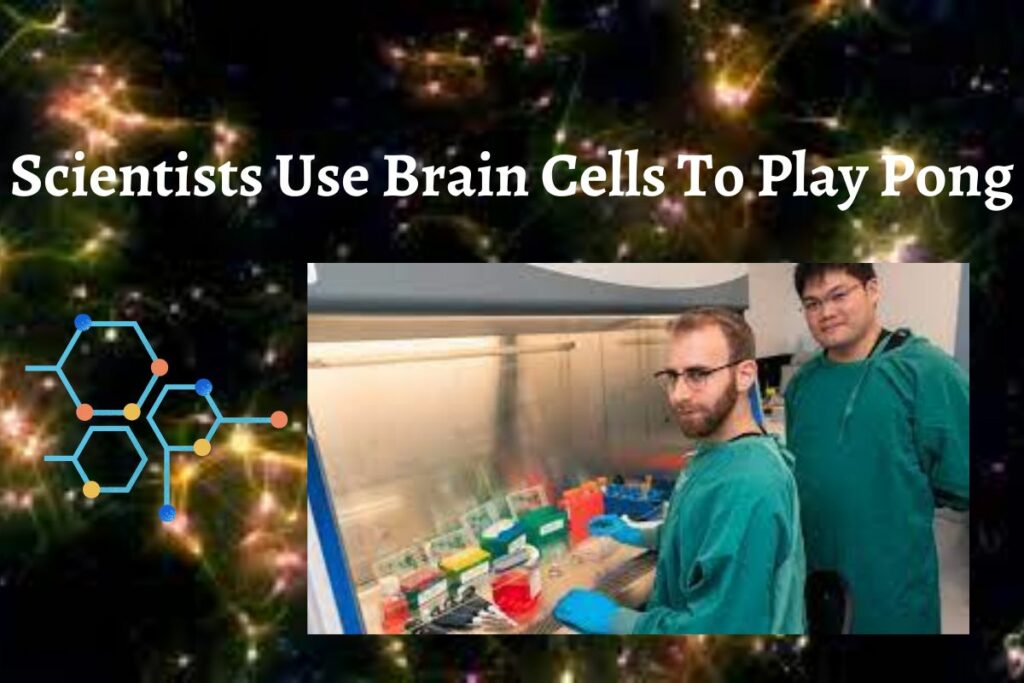Scientists have developed lab-grown neural tissue capable of playing Pong, a video game resembling a tennis-like variant popular in the 1970s. They claim their “mini-brain” has the ability to perceive and react to its surroundings.
Dr. Brett Kagan of Cortical Labs, in an article published in the journal Neuron, claims to have developed the first “sentient” brain in a petri dish. Others in the field agree that the research is exciting but that it is a stretch to say that brain cells are conscious.
“Dr. Kagan says, “There is simply no other way to describe this device. It can receive data from somewhere else, analyze it, and react to it instantly.” In 2013, scientists first created mini-brains to investigate microcephaly, a genetic disorder characterized by an abnormally small brain, and have since used them to study normal brain development.
This, however, is the first time they have been connected to and engaged with an external environment, in this case a video game.
You can also check
- Apple News Account For Fast Company Was Hacked And Used To Send A Sexually Explicit Push Notice
- Meta Has Introduced The Quest Pro, A Virtual Reality Headset That Costs $1,500. Have We Got A Chance To Sell It?
The Research Team:
collected 800,000 human brain cells, some of which were derived from mouse embryos. electrodes linked this mini-brain to the game, showing where the ball was in relation to the paddle. The cells responded with their own electrical activity.
‘Lab-grown brain cells play video game Pong’https://t.co/OkFdM3vOXj
Our Director @HammDanielle spoke to @BBCPallab about the ethics of new research out this week using lab-grown brain cells. https://t.co/NGUbq4qfq2 (starts 26m 40)
— Nuffield Council on Bioethics (@Nuffbioethics) October 14, 2022
As the game progressed, they began to use less and less energy. However, they expended more energy recalibrating to a new unpredictable situation every time the ball went past a paddle and the game was restarted with the ball at a random point.
In just five minutes, the tiny brain picked up the game. It had a low hit percentage, but it was still significantly better than chance. However, the researchers emphasize that because it lacks consciousness, the robot does not experience playing Pong in the same way a human would.
Beer Pong?
Dr. Kagan believes the technology has potential application in the evaluation of therapies for neurodegenerative diseases like Alzheimer’s. “Now, when people examine tissues in a dish, they are looking for signs of life or death.
However, brain cells exist to perform real-time processing, “What he’s saying is… Discovering their true purpose “unlocks so many more research areas that can be explored comprehensively.” Dr. Kagan is going to evaluate the effects of alcohol on the mini-Pong-playing brain’s abilities next.
Brain Cells Playing Pong
Researchers @WCHN_UCL have worked as part of a team who have taught brain cells grown in a lab to play the retro video game
Read more in the article published on @BBCNews https://t.co/VC16igtfnW #neuroscience
— Wellcome Centre for Human Neuroimaging (@WCHN_UCL) October 13, 2022
Its potential usefulness as a human brain stand-in in experiments will be highlighted if it exhibits similar responses. However, many dictionaries define sentient as able to have feelings and sensations, which goes against Dr. Kagan’s description of his system.
Dr. Dean Burnett, an honorary research associate at Cardiff University’s Department of Psychology, suggests instead using the term “thinking system.” The stimulus they are experiencing is being “thought about” in a fundamental sense, he explains, because “information is being passed around and clearly used, causing changes.”
You can also check
- Meta Has Introduced The Quest Pro, A Virtual Reality Headset That Costs $1,500. Have We Got A Chance To Sell It?
- The GeForce RTX 4080 12GB Has Been Discontinued.
As the research progresses, the complexity of the mini-brains is expected to increase; however, Dr. Kagan’s team is consulting with bioethicists to make sure they don’t inadvertently create a conscious brain, which would raise a host of new ethical concerns.
“We have to see this new technology very much like the nascent computer industry, when the first transistors were janky prototypes, not very reliable — but after years of dedicated research, they led to enormous technological marvels across the world,” he says.
Researchers in the field of artificial intelligence (AI) have already developed machines that can defeat chess grandmasters. But Dr. Kagan’s collaborator, Professor Karl Friston of University College London, claims: “The mini-brain learned without it being taught and so is more adaptable and flexible.”
Final Lines:







